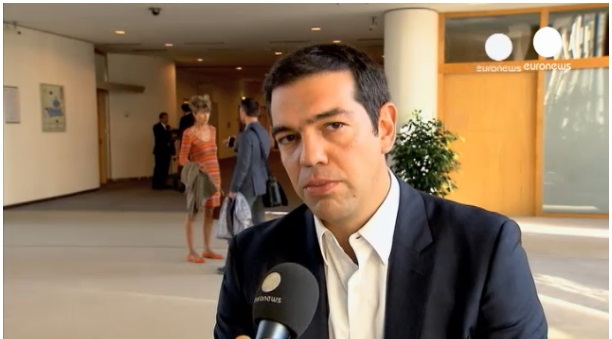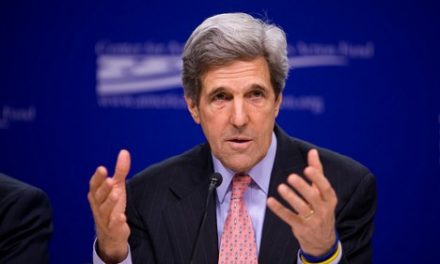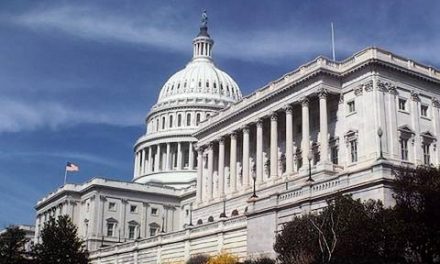Dan Steinbock, CNBC
The impending Greek elections will reframe the euro crisis in terms of debt relief. That will force new and adverse scenarios on the region. The repercussions will be global.
Before the New Year, the Hellenic parliament rejected the nominee of Prime Minister Antonis Samaras for president. In accordance with the Greek constitution, a general election will follow on January 25.
Between 2008 and 2015 Greek GDP per capita, adjusted to inflation, tanked from $30,820 to $21,570; that is, 30 percent. After half a decade of misguided austerity policies, the moderate middle has been discredited in Greek politics.
The conservative New Democracy (ND) is losing its lure. The PASOK social-democrats have shrunk. However, the support of fringe parties has exploded. In current polls, the radical left coalition Syriza garners about 28 percent of the vote, as against 25 percent for the ND, even if this lead has narrowed somewhat.
Led by the young and shrewd Alexis Tsipras, Syriza has played down its radical left-wing left roots and become more populist. It needs mainstream voters to govern.
But what will Syriza do if it wins?
Athens did not return to markets on its own, but after two huge bailouts of €73 billion ($88 billion) and €164 billion ($197 billion), respectively. Behind-the-façade talks have begun over a third bailout amounting to some €20 billion to €30 billion ($24 billion to $36 billion).
By 2012, German Chancellor Angela Merkel was close to permitting a Greek default. But the fear was that if the Greek contagion could not be contained, it could spread to Italy and Spain. As a result, Greece was given its second bailout, but only so that Italy and Spain would be ensured a two-year timeout to stabilize their economic turmoil.
Vowing to challenge half a decade of austerity policies that caused a Depression in Greece, Syriza seeks to expand its constituency by policies that are considered highly controversial in Brussels and Berlin.
These measures include a (big) haircut for creditors; tax cuts for all but the rich; an increase in the minimum wage and pensions to €750 a month; free electricity, food stamps, shelter and health care for those who need it; a moratorium on private debt payments to banks above 20 percent of disposable incomes.
But nothing worries the Troika — the European Commission, European Central Bank (ECB) and the International Monetary Fund (IMF) — more than the Syriza's pledge of an international conference on debt relief, vis-à-vis "official sector involvement" (OSI).
In his meetings with the ECB, Germany's finance minister and IMF executives, Tsipras has said that debt profiling would only involve OSI — a message that his economic advisors have repeated to funds and investors in the City of London.
In 2015, after bailouts that amount to some €250 billion ($300 billion), Greece's current financial needs are estimated at almost €20 billion ($24 billion). These include interest payments, IMF funds repayments, ECB's maturing bonds, and arrears.
External assistance will only come with strings attached. In December, the sixth review of the Greece's bailout program was not completed but extended until the end of February 2015.
Until the election, the IMF, which currently remains the only OSI provider of funds to Greece, and the Hellenic Financial Stability Fund are hedging their bets. The recent widening of the Greek government bond (GGB) spreads indicates that volatility is largely confined to Greece in Europe; at least, for now.
In the past few years, Brussels has managed to build insulation mechanisms to reduce the probability of contagion. Nevertheless, these mechanisms rely on the market expectation the ECB is about to shift to broader quantitative easing (QE).
The ECB's full QE is expected to include purchases of the larger Southern European economies (e.g., Spain and Italy), which are seen as too-big-to-fail — but not necessarily those of smaller peripheral countries (Greece, along with Portugal and Cyprus).
The real drama starts, when Syriza and the Troika will begin their negotiating gamble in the end of January. Tsipras has set the tone by saying that his government would cease to enforce the bail-out demands "from its first day in office."
He is hoping that the Troika and Germany would blink and support Greece, despite Athens' controversial policies.
However, from the creditor standpoint, the blink scenario could unravel the 2010-14 austerity policies because it would provide an incentive for other fragile euro economies to engage in similar hard bargaining with the Troika and thus reverse much of the past progress.
So another scenario is that, instead of the Troika, Syriza will blink. In this scenario, the radical left would allow the dilution of its social policies, but not its pledge of an international debt conference. The party would seek debt relief reminiscent of that granted to Germany in 1952 (62 percent). This scenario would cut significantly the general government debt, which today exceeds 190 percent of the Greek GDP.
In this case, Tsipras would be likely to get a call from the ECB and his response would be: "Do your worst."
But what if neither the Troika nor Syriza would blink?
In this scenario, the Troika would bet that the radical left will collapse politically under escalating economic pressure. Whereas Syriza would presume that the Troika would not dare to show the euro door to Greece because that would risk the progress that Brussels has achieved since spring 2010.
In this scenario, the subsequent volatility would shake the markets, and Athens would be forced to exit the euro zone, which would serve as a warning to Italy and France to stay the course. In turn, Brussels would bet that it can absorb the shock associated with consequent economic shocks.
Whatever the final scenario, the repercussions will reverberate not just in Greece or the euro zone, but across the global economy.
Commentary by Dan Steinbock, a research director of International Business at India China and America Institute (USA), visiting fellow at Shanghai Institutes for International Studies (China) and in the EU-Center (Singapore). See also www.differencegroup.net.



















